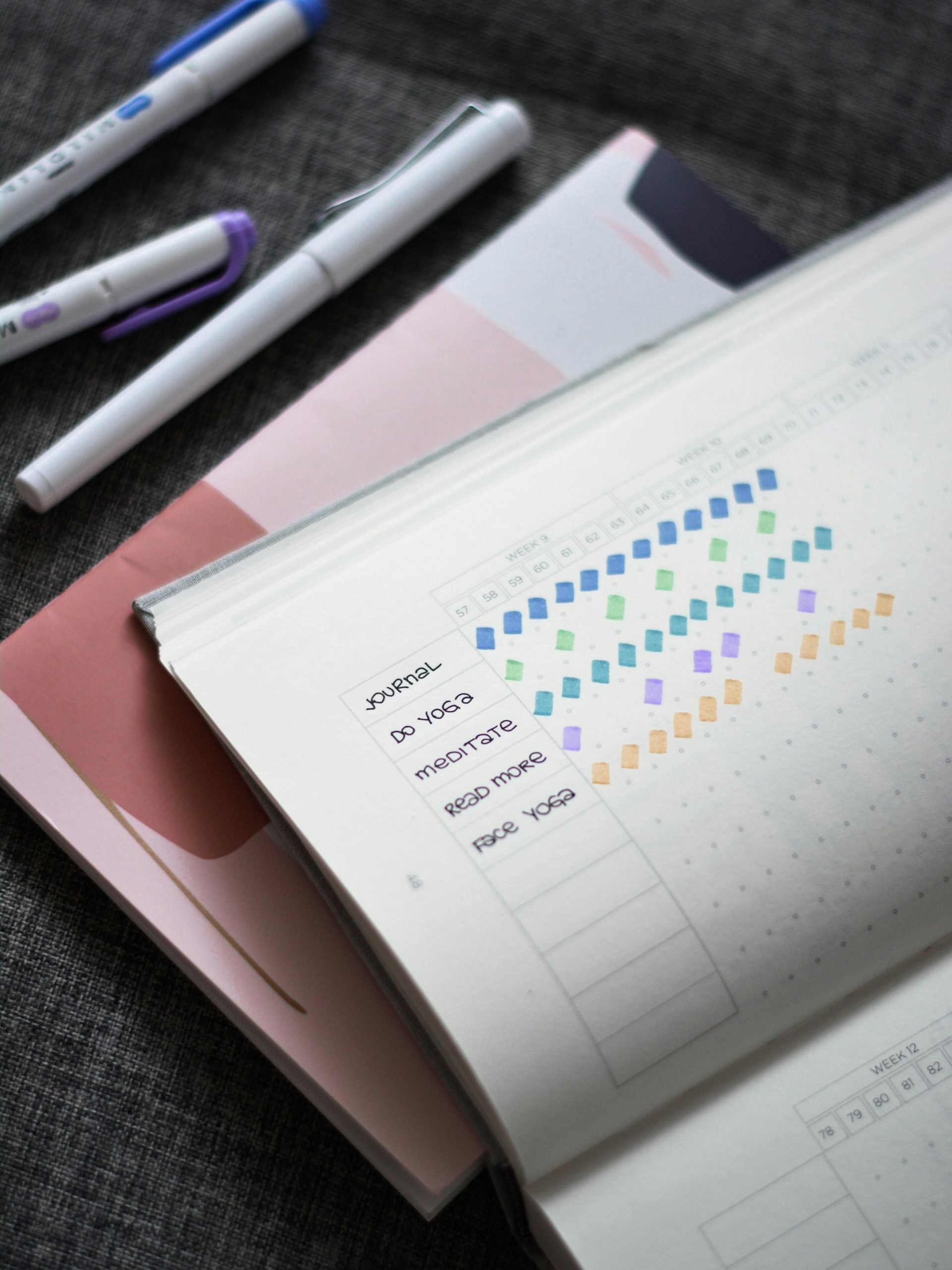I really don’t feel like writing this today. I’m tired and have a definite lack of energy (there is a difference). But, after 23 installments, I feel like I’ve committed. I have an obligation to keep posting. So, I’m going to use one of my tools, opposite action, and power through.
We had a different clinician today. Our normal one was out sick. Basically, we had a sub today. It’s not as bad as a substitute teacher, though. This sub was fully qualified and had a lesson plan ready. The difference today was more in style than in substance.
My check-in was OK. I talked about my lousy night’s sleep (I did use my sleep journal, so I have proof that it was a bad night). I also bragged about my kid being in an art show. That was about it. It wasn’t my most detailed check-in ever.
For the second hour, we talked about building new habits. There were eight pieces to remember in building new habits:
- Differentiate between goals and habits
- Start with small changes
- Update your environment
- Tie new habits to other activities
- Some practice is better than no practice
- Tell someone you’re starting a new habit
- Track your habit
- Celebrate your successes
The difference between goals and habits is that goals are the end result and habits are the actions taken to achieve the goal. Small changes just means don’t bite off more than you can chew. Updating the environment is making your space more conducive to the new habit. If you want to eat better, keep fresh fruit on the counter and remove the chocolate from your house. Tying new habits to other activities is like saying, “After I eat dinner, I will floss my teeth.” I’m already going to eat dinner. The pairing will encourage me to floss. Some practice just means to do something, no matter how small, towards building your habit every day. Telling someone you’re starting a new habit is like having an accountability buddy. Tracking your habit can be satisfying. And celebrating your successes is just giving yourself small rewards for doing the habit successfully.
The last hour was spent talking about how and when to tell others about our mental illness. The handout we had was called “Disclosing to Others”, but that sounds too formal. There are a bunch of reasons to tell people. It can be anything from “I want you to know” to “I have to explain my unusual behavior” to “I don’t want to get fired”. It can be risky to tell people, though. The worksheet said there are three possible outcomes of telling someone. The first, and best, is that the person is genuinely comfortable with the information and the relationship stays the same. The second is that the person can’t handle it and ends the relationship. The third is that the person says they’re fine, but the relationship slowly fizzles out. I’ve never had the second one happen to me, but the other two are familiar.
The how part was less helpful. There’s no right way. It all comes down to what you’re comfortable saying. It suggested using “process” talk, which is just outlining how the conversation will go. Also, using concrete examples. And suggesting ways to be supportive. Nothing can guarantee that the person you’re telling will understand.
It looks like the opposite action worked. I got my 500 words on today’s IOP session. Yay me. Hopefully I’ll feel more like writing tomorrow.












One thought on “My Mental Health Journey Through an Intensive Outpatient Program – Part 24”